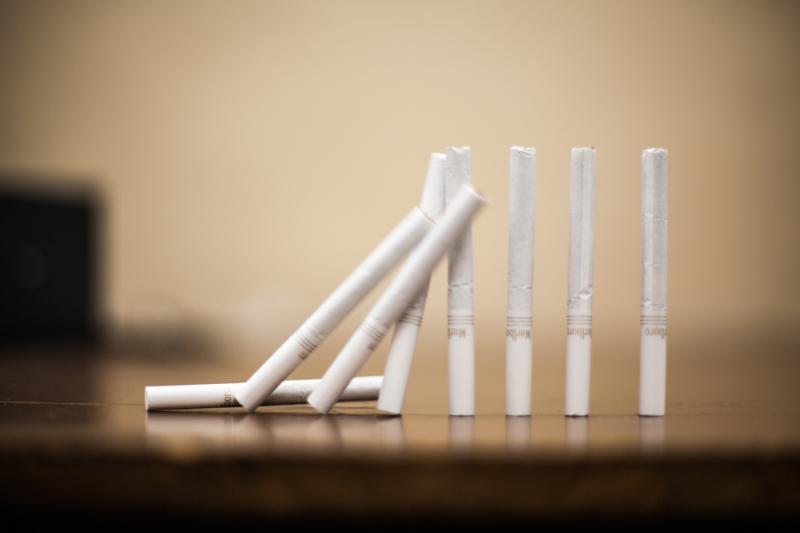Committee Weighs Tobacco Ban Details
The Tobacco Ban Implementation Committee will meet Monday to continue developing implementation plans for the tobacco-free campus policy. While the ban is scheduled to go into effect in June 2016, there are still significant pieces of the legislation that have not yet been decided, such as sanctions for those who violate the new rules.
September 18, 2015
The Tobacco Ban Implementation Committee will meet Monday to begin discussing how to implement a controversial policy that has been more than four years in the making. The tobacco ban already includes two notable exemptions: tobacco use in Tappan Square and the use of e-cigarettes. Oberlin’s tobaccofree campus policy will take effect on June 1, 2016.
“The Implementation Committee is tasked with assuring that the transition from the current policy that permits smoking out of doors within certain parameters, to a policy that prohibits tobacco use in all outdoor spaces with the exception of Tappan Square,” said Housing and Dining Communications Coordinator and committee member Ehrai Adams in an email to the Review.
According to Adams, the Tappan Square exception for the smoking ban will be reevaluated in two years.
While certain key details — such as sanctions against tobacco users — are not yet defined, the tobacco ban will apply to all Oberlin students and teachers and prohibit the use of cigarettes, cigars, chew and all other tobacco-based products, notably excluding e-cigarettes.
“This is a tobacco ban, and e-cigarettes don’t actually use tobacco,” said College junior, Student Senator and committee member Jordan Ecker. “There’s debate as to how dangerous ecigarettes are, but they’re not covered by the ban now.”
The implementation committee consists of Professor of Music Theory Jared Hartt, Psychology professor Meghan Morean, Counseling Psychologist Debra El-Amin, Campus Security Supervisor Dave Bender, College senior Machmud Makhmudov, College senior Cory Ventresca, College junior Jeremy Poe, Adams and Ecker. All of the students on the committee are also student senators.
“As of now, not everything’s decided,” Makhmudov said. “And obviously we can’t anticipate everything, and the policy will probably be tinkered with. But in the end, this is all going toward improving student health and lowering tobacco use.”
However, the expectations of what the tobacco ban will actually accomplish remain mixed.
“Honestly, it seems like one of the biggest effects is that students will smoke inside, which would be absolutely terrible,” Ventresca said. “I don’t like what we have now because it doesn’t work, but a draconian policy isn’t going to work either.”
Many concerns about the ban pertain to enforcement of the ban and the sanctions against possible offenders.
“Honestly, I think it’s a stupid waste of time,” College fifthyear Megs Bautista said. “Oberlin’s just trying to keep up with the trend of other liberal arts schools, but this is a policy that will end up hurting students. It’s just another excuse for Safety and Security to mess with students, especially marginalized students.”
Ecker, who opposes the ban, is hopeful that its implementation won’t significantly interrupt the flow of student life.
“Right now it looks like it’s going to be treated just like an alcohol or drug violation,” Ecker said. “Ideally it would start out with just warnings, and like drugs and alcohol, the policy won’t actively be enforced by Safety and Security. In practice, it doesn’t seem like it will affect student behavior that much.”
According to Adams, enforcement of the ban is something the committee will examine closely.
“Compliance with the new policy is also one of the major responsibilities of the committee, and we will be working closely with members of Dean of Students office and Human Resources as well as looking into what other schools with similar policies have done,” Adams said.
















